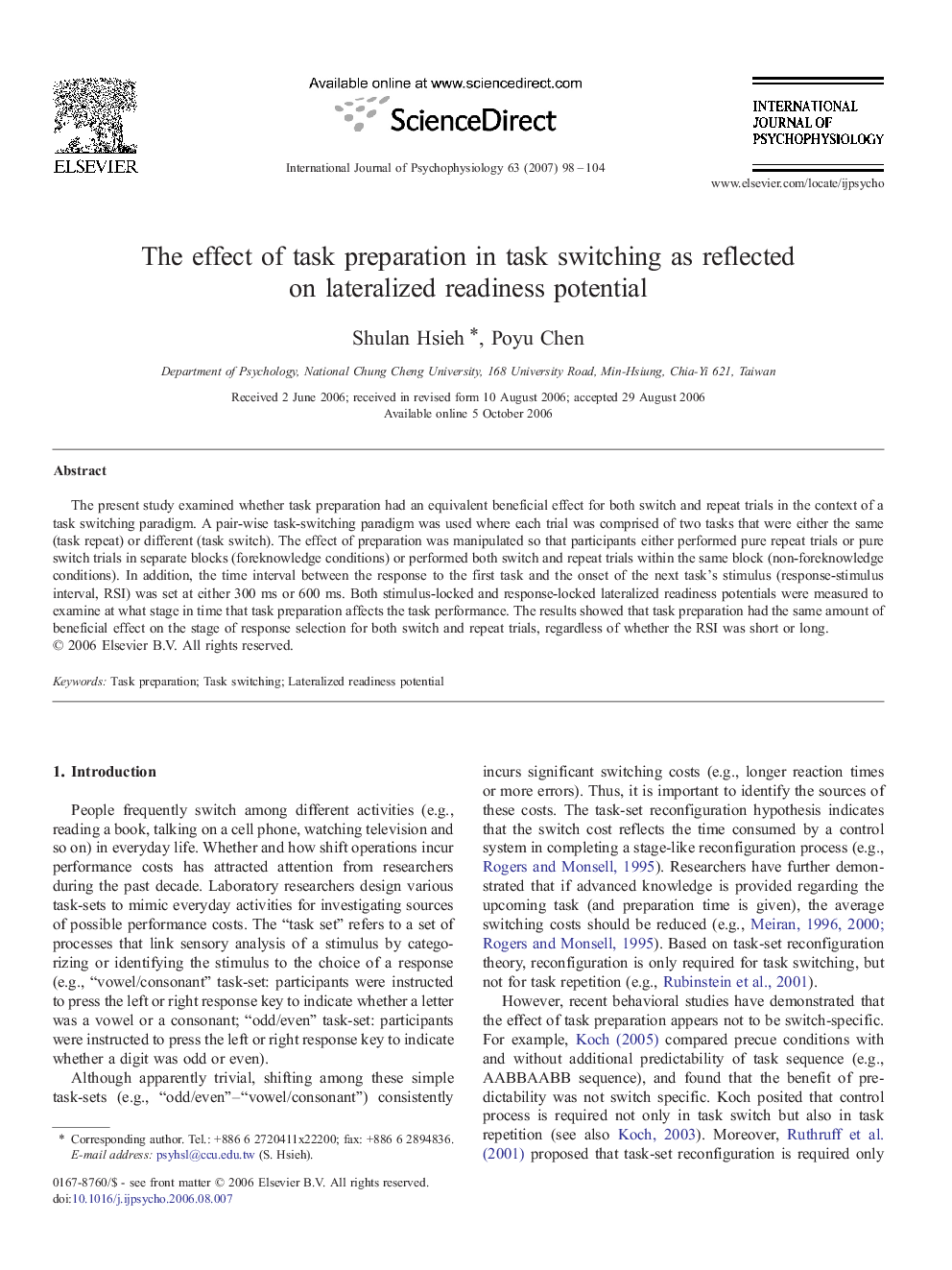| Article ID | Journal | Published Year | Pages | File Type |
|---|---|---|---|---|
| 930909 | International Journal of Psychophysiology | 2007 | 7 Pages |
The present study examined whether task preparation had an equivalent beneficial effect for both switch and repeat trials in the context of a task switching paradigm. A pair-wise task-switching paradigm was used where each trial was comprised of two tasks that were either the same (task repeat) or different (task switch). The effect of preparation was manipulated so that participants either performed pure repeat trials or pure switch trials in separate blocks (foreknowledge conditions) or performed both switch and repeat trials within the same block (non-foreknowledge conditions). In addition, the time interval between the response to the first task and the onset of the next task's stimulus (response-stimulus interval, RSI) was set at either 300 ms or 600 ms. Both stimulus-locked and response-locked lateralized readiness potentials were measured to examine at what stage in time that task preparation affects the task performance. The results showed that task preparation had the same amount of beneficial effect on the stage of response selection for both switch and repeat trials, regardless of whether the RSI was short or long.
